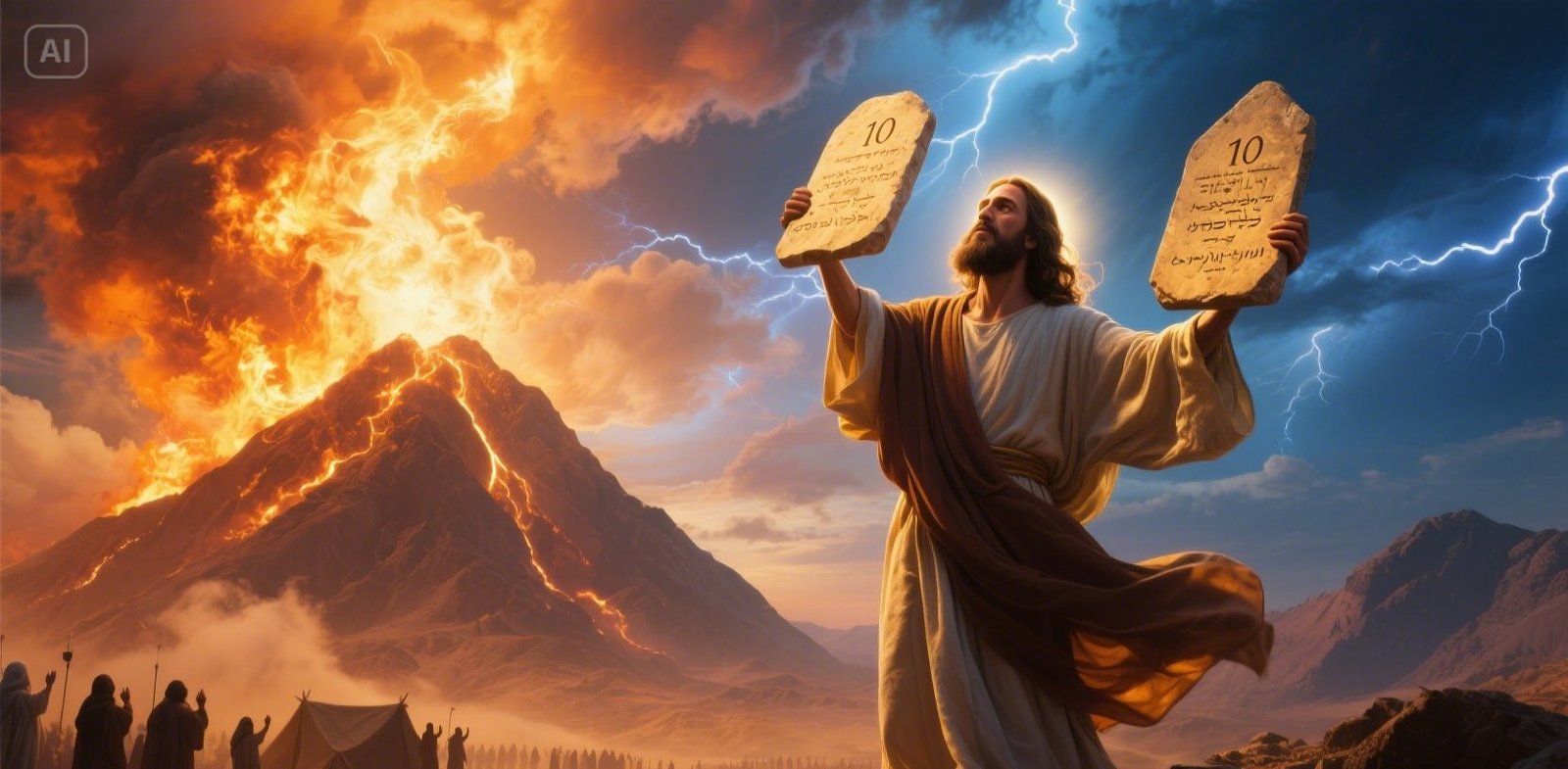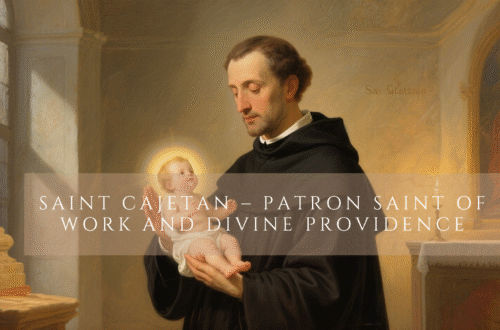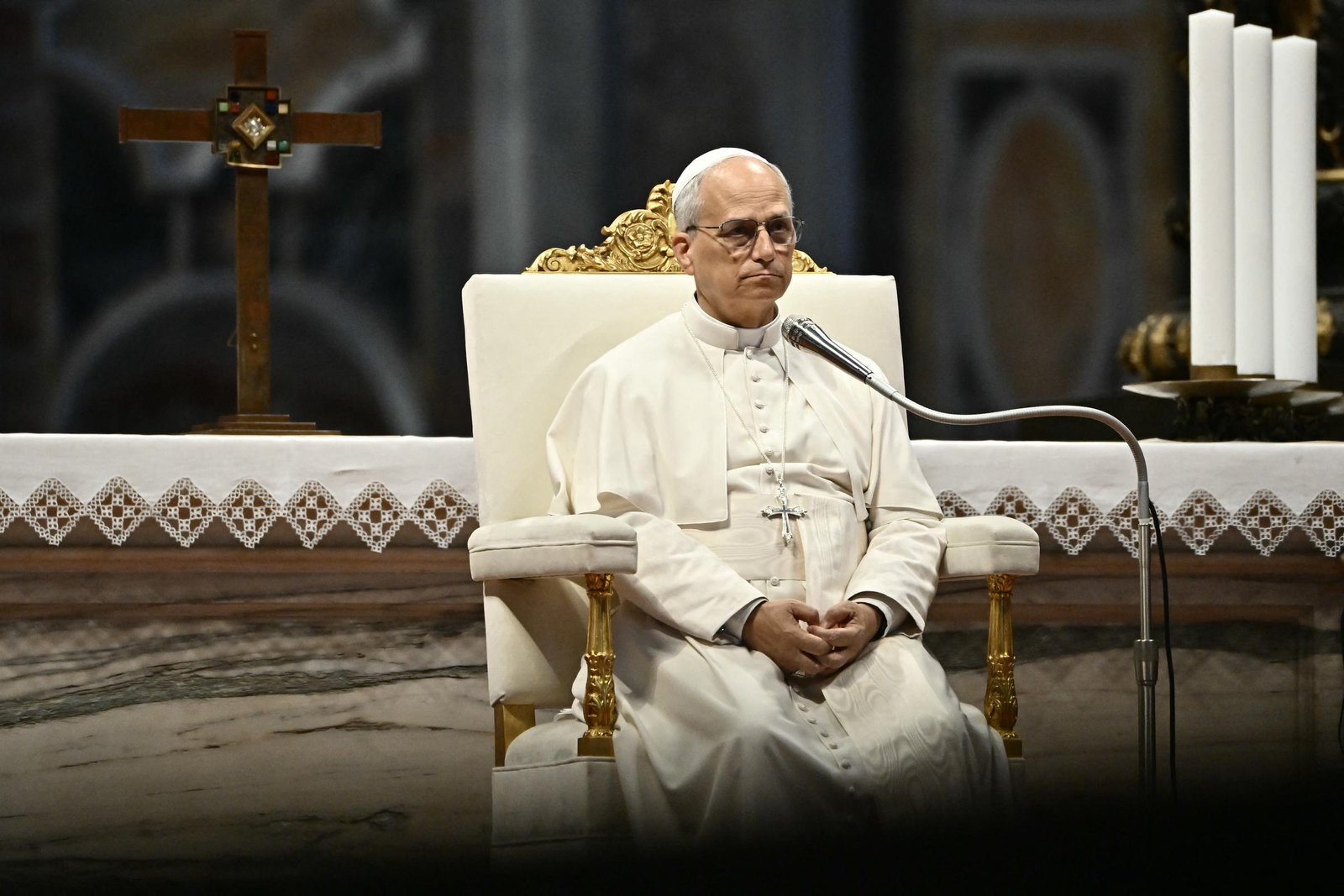When Moses climbed Mount Sinai, he didn’t just scale a mountain—he entered a divine court. It was on this burning peak, wrapped in smoke and trembling with thunder, that God gave His people a covenant that would shape their identity, their future, and the very fabric of human law and morality.
But what is the Law of Sinai? Why was it so important that God Himself wrote it with His own finger? And what does it mean for us today?
“Now therefore, if you will indeed obey My voice and keep My covenant, you shall be My treasured possession among all peoples.”
— Exodus 19:5
What Happened at Mount Sinai?
After being delivered from slavery in Egypt, the Israelites camped at the foot of Mount Sinai. God summoned Moses to ascend the mountain. There, amid lightning, fire, and the sound of a heavenly trumpet, He gave Moses what we now call the Law of Sinai—beginning with the Ten Commandments.
This wasn’t a set of random rules. It was a divine covenant, a holy marriage between God and His people. The Law was an invitation to walk in God’s ways, to be set apart as a nation that reflected His holiness and justice.
The Ten Commandments: The Heart of the Law
The Ten Commandments (Exodus 20:1–17) are the core of the Sinai covenant. Unlike later civil or ceremonial laws, these were universal, moral truths that revealed God’s character and His will for all people.
Here they are—each followed by a reflection to bring them to life:
1. “You shall have no other gods before Me.”
Reflection: Loyalty begins here. This command calls us to reject all false allegiances—whether to fame, wealth, power, or self—and to recognize the One True God as supreme.
Lesson: Let God be first, and everything else will fall into place.
2. “You shall not make for yourself a carved image…”
Reflection: Idolatry isn’t just bowing to statues—it’s anything we place above God in our hearts. Even good things (family, career, causes) can become idols.
Lesson: Purify your heart of anything competing with God’s voice.
3. “You shall not take the name of the LORD your God in vain.”
Reflection: God’s name is sacred. This command goes beyond profanity—it’s about treating God lightly, casually, or using His name to justify evil.
Lesson: Let your words about God carry reverence, not manipulation.
4. “Remember the Sabbath day, to keep it holy.”
Reflection: Sabbath is rest—but also resistance. It resists the world’s demand for endless productivity. It reminds us we are human beings, not human doings.
Lesson: Make space for stillness, worship, and renewal.
5. “Honor your father and your mother.”
Reflection: Family structure reflects divine order. Honor builds legacy. Even in imperfect homes, respect and humility sow seeds of peace.
Lesson: Heal generational wounds through honor and prayer.
6. “You shall not murder.”
Reflection: Life is sacred. This command guards not only physical life but speaks to the value of each soul. Jesus expanded this to say even hatred in the heart breaks this law.
Lesson: Choose peace, even in your thoughts.
7. “You shall not commit adultery.”
Reflection: Faithfulness matters. This command protects the sanctity of marriage and covenant love. It’s about more than sex—it’s about loyalty, trust, and purity of heart.
Lesson: Guard your heart with holiness and respect for others.
8. “You shall not steal.”
Reflection: Stealing is rooted in distrust of God’s provision. This command honors boundaries, labor, and trust.
Lesson: Be content, and steward what you’ve been given.
9. “You shall not bear false witness…”
Reflection: Truth is foundational to justice. Lying is a weapon that wounds others and deforms society.
Lesson: Speak truth, even when it costs you.
10. “You shall not covet…”
Reflection: Coveting breeds restlessness. It’s the root of many sins—envy, theft, pride. This command tells us contentment is holy.
Lesson: Train your heart to rejoice in what you already have.
The Law of Sinai and Human Civilization
What many don’t realize is that the Ten Commandments laid the foundation for Western law and justice systems, particularly in Europe and later in the Americas. These divine laws weren’t just religious guidelines—they were blueprints for order, morality, and conscience.
- The concept of universal moral codes, justice, and accountability stem from Sinai.
- Our understanding of human rights, property, due process, and truth in testimony trace back to these ancient principles.
- Even constitutional law in early America echoed the biblical call to self-governance under divine law.
God didn’t just give the Israelites commandments—He gave humanity a structure by which to live in harmony. These commandments were the foundation for building civil societies where truth, justice, and restraint would reign over chaos.
Jesus Himself affirmed the value of law and order when He said, “Render to Caesar what is Caesar’s, and to God what is God’s” (Mark 12:17). This wasn’t a contradiction—it was a reminder that both divine and civic obedience have their place. A righteous life honors both God’s moral order and the laws that uphold peace.
In an age of lawlessness, the Law of Sinai reminds us that freedom requires boundaries, and holiness requires obedience. While modern societies have drifted from their source, the echoes of Sinai still shape our conscience—and call us to return.
How the Law Foreshadowed Christ
The Law was not the end of God’s plan—it was the beginning of a greater covenant. It pointed forward, like a shadow cast by a figure approaching. The Apostle Paul explained that “the Law was our tutor to bring us to Christ” (Galatians 3:24). It taught us right from wrong, justice from sin, but it could not change the heart.
Jesus did not abolish the Law. He fulfilled it (Matthew 5:17). Every commandment, every ritual, every sacrifice whispered His name.
- Where the Law showed us what is holy, Jesus became our holiness.
- Where the Law condemned sin, Jesus offered mercy.
- Where the Law demanded sacrifice, Jesus was the sacrifice.
He obeyed the Law perfectly—not with complaint, but with compassion.
Jesus consistently modeled obedience with integrity, even under unjust systems.
Even when it came to taxes, He did not resist authority, but found a way to honor both God and Caesar (see Matthew 22:21).
He encouraged obedience, not out of fear, but through faith and love.
Where others sought loopholes, Christ sought truth.
Where others challenged the Law’s burden, Christ carried it to the cross.
He bore its penalty on our behalf so that we might live not by force, but by freedom—a covenant no longer carved in stone, but written on hearts..
Living the Law Today: Spirit Over Stone
As believers, we are not under the old covenant but live in the power of the Holy Spirit. Yet, the moral heAs believers, we are no longer under the old covenant, but live through the power of the Holy Spirit. Yet the moral heart of the Law still speaks—because God’s standard has not disappeared. It has simply moved from stone to spirit.
Paul wrote:
“The law is holy, and the commandment is holy and righteous and good.” (Romans 7:12)
God now writes His law on our hearts, not tablets of stone (Jeremiah 31:33). This means we are not bound by external rituals, but inward conviction. The Law no longer condemns—it instructs us to live in love, humility, and obedience.
But today, the Law is often misused.
In this generation, we’ve seen laws twisted into weapons—used not to uphold justice, but to silence, control, and dehumanize.
People claim divine authority but act without compassion. They present themselves as judges, as monarchs of truth—as if they alone represent God’s will on earth.
But Jesus never ruled with pride. He served with gentleness, healed the broken, and exposed the proud.
The Law was never meant to elevate one man over another. It was meant to humble us all before a holy God.
We must ask ourselves:
- Do we wield rules to dominate, or to serve?
- Do we quote commandments to control others, or to reflect God’s heart?
- Do our laws bring healing… or harm?
The Spirit of God convicts gently, corrects lovingly, and leads toward peace.
Let us return to that Spirit—where the Law is not a throne for man, but a mirror for the soul.
Final Reflections: Sinai Still Speaks
The mountain burned with fire, but the message was one of love. God wasn’t just giving rules—He was inviting a people into a relationship. Sinai was a proposal, a covenant sealed with glory.
And that covenant still speaks.
So many try to run from God’s boundaries, believing they limit freedom. But Sinai teaches us:
- Law is not bondage—it’s the framework of holiness.
- Obedience is not fear—it’s faith in action.
- The commandments are not outdated—they are eternal truths echoing across generations.
Today, every nation operates by laws—civil, legal, moral. Governments have systems. Agencies have rules. Families have expectations. But at the root of all these is the divine foundation: God’s law.
The Law of Sinai was never just about rituals—it was about justice, integrity, mercy, and order. And while humans may corrupt systems, twist regulations, or weaponize authority, God’s truth remains pure.
We are called not to reject law, but to honor it—with the Spirit of Christ.
We are called not to misuse power, but to use it with humility and accountability.
We are called to be people who uphold righteousness, not just in church, but in courtrooms, boardrooms, classrooms, and households.
Let this be a moment of reflection:
- Are we living by truth, or convenience?
- Do we obey when it’s hard—or only when it’s easy?
- Are we building a society that reflects God’s justice, or man’s pride?
The commandments are not just ancient words—they are blueprints for holy living.
Not to crush us, but to form us into something greater.
And even now, they invite us upward.
“Let us go up the mountain of the Lord… that He may teach us His ways and we may walk in His paths.”
— Isaiah 2:3




